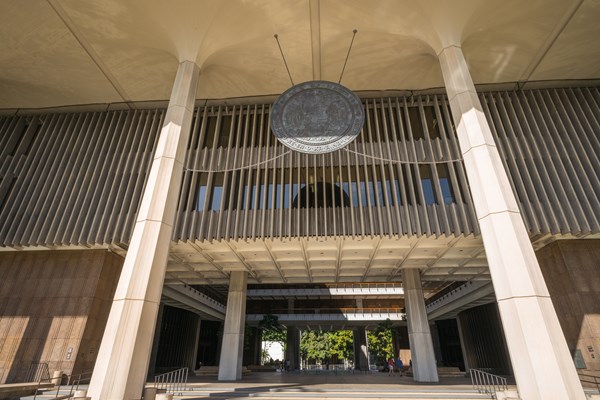Key legislative priority bills enacted into law
Jul 29, 2024

Gov. Josh Green, M.D. signed a series of landmark bills this summer, marking significant progress on key sustainability initiatives. These measures, emerging from the 2024 legislative session, align closely with Ulupono Initiative's mission to foster a more sustainable and resilient Hawai‘i in the areas of local food production, renewable energy expansion, and improved freshwater resource management.
“Reflecting on the 2024 Legislative Session, we’re pleased with the progress made in advancing key initiatives that align with Ulupono's commitment to sustainability and resilience,” said Micah Munekata, director of government affairs. “Weʻd like to thank our lawmakers, partners and stakeholders in the various sectors for their collaboration and hard work this past session. We look forward to working closely with them in 2025.”
Under Act 230, the State’s supplemental budget bill, funding was appropriated to bolster local food production and renewable energy:
Local Food Production: SNAP “DA BUX” funding
The Hawai‘i Healthy Food Incentive Program, which is known as DA BUX, will continue through funding appropriated in the budget bill. DA BUX offers matching funds to Supplemental Nutrition Assistance Program (also known as SNAP) participants, helping local families and farmers alike, while keeping money within the local economy. The annual state allocation of $1.5 million will unlock an additional $1.5 million in federal funds. This amount multiplies at grocery checkouts, which provides $6 million in purchasing power for local produce. According to Food and Nutrition Service data, this doubling of resources provides an estimated $12 million into the local sustainable food economy.
Local Food Production: State Department of Agriculture grant writer
Renewable Energy: Geothermal exploration funding
Additionally, Act 230 includes $3 million to fund geothermal energy exploration through the Hawai‘i Technology Development Corporation. It’s been determined that wind and solar are not enough for Hawaii to meet its 2045 renewable energy goal and this funding will support preliminary research that suggests geothermal energy potential exists on several islands. This type of renewable source uses less land per megawatt compared to others, which helps lessen the demand for available land.
Other Top Priorities:
Local Food Production: Agricultural biosecurity
Under Act 231, the Hawaii State Department of Agriculture received $10 million for critical biosecurity programs and much-needed additional staff dedicated to protecting our local agricultural industry. Programs include invasive species control for species such as Coconut Rhinoceros Beetles, Little Fire Ants, Two-Lined Spittlebugs, etc.
Better Management of Freshwater Resources: State Department of Health revolving fund flexibility
Through Act 218, the State Department of Health (DOH) has been authorized to transfer federal capitalization grant funds between the Water Pollution Control Revolving Fund (CWSRF) and the Drinking Water Treatment Revolving Fund (DWSRF). This flexibility allows the DOH to direct funding to drinking water or wastewater infrastructure based on community needs to better utilize federal funding. Having this capability is especially crucial during a crisis response, such as the Red Hill fuel spill or the Maui Wildfires.

